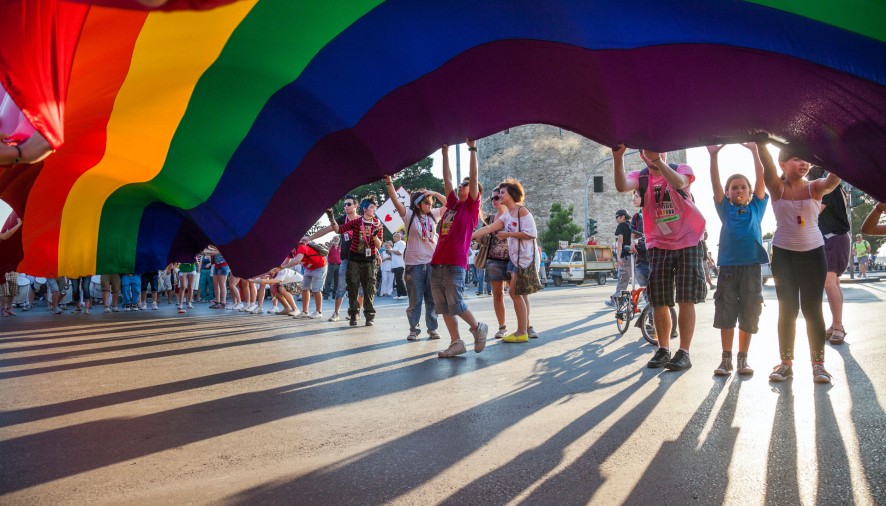LGBTTTQQIAA. You would be forgiven if you were unable to explain what each of those letters stands for. As someone who is part of this ever-expanding acronym, I even find myself unable to name each of the featured terms. In order, it stands for: Lesbian; Gay; Bisexual; Transgender; Transexual; Two-spirited; Queer; Questioning; Intersex; Asexual; Ally. Until last year, I didn’t even realise that ‘Queer’ was no longer considered a slur. To confuse matters further, the above is not an exhaustive list of terms used within the LGBTQ* community; there is also Pansexual, Agender, Gender Queer, Bigender, Gender Variant and Pangender, to name just a few.
It seems somewhat strange, though, that we seem to have an ever-expanding list of terms and categorisations in a time when many young people who identify as LGBTQ* are rejecting being given any particular label.
When Union J singer George Shelley released a video last week saying that he had dated both men and women in the past and would date either in the future, he claimed that he would not resort to labelling himself as straight or bisexual as he felt that such labels were “old-fashioned”. This is not an uncommon attitude amongst members of the LGBTQ* community. In an age where sexuality and gender is becoming increasingly fluid, and traditional ideas of what gender and sexuality are being broken down, it is not exactly surprising either.
More and more, people are identifying themselves – in terms of their gender and sexuality- in more personal ways. This begs the question: is there even a point trying to label or categorise people on account of their gender and sexuality? As a subject that can be better thought of as a sliding scale than as a series of fixed divisions, and when the differences between some of the proposed categories appear so nuanced as to render one or the other pointless, it can seem almost counterintuitive to seek to label an individual with a fixed term on such matters.
There is, of course, something that can be said for the virtue of categorisation when it comes to organisation of the various individuals within the LGBTQ* community. As a group regularly subjected to oppression and discrimination, being able to unite under one banner provides us with a greater chance to make a difference for all individuals within the LGBTQ* community. But whilst this might say something for the umbrella term of ‘LGBT’, it doesn’t necessarily make any difference in terms of the usefulness of the individual distinctions within this category.
By no means are the various group terms a bad thing; many people are happy to identify with a particular label and wear it with pride. But as the traditional divisions between various genders and sexualities appear ever more antiquated, so might the abundance of modern divisions prompted by the revolution of identity in which we seem to find ourselves soon seem equally so.
Liam Kerrigan
Image: Getty

